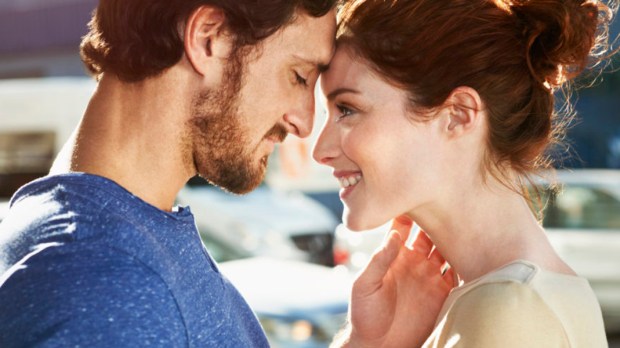Lenten Campaign 2025
This content is free of charge, as are all our articles.
Support us with a donation that is tax-deductible and enable us to continue to reach millions of readers.
After posting a picture online of her grandparents’ wedding 60 years ago, a friend of mine wrote, “After all these years, they still only have eyes for each other.”
There was a time I would have written such a sweet sentiment off as cliche, not giving it much credit. We say that couples only have “eyes for each other,” but most of us use it as a cute phrase, rather than thinking about what that really means. Seeing my friend’s photo caption made me wonder: could the act of staying focused on one another, truly seeing the other person, be the key to 60 years of wedded bliss?
Happy marriages have long been a trendy topic for scientific research. What makes one couple’s relationship more bliss-filled than the next? But that question comes in many forms. A recent study out of Rutgers and New York University focused on the biology of love. It found that “couples downgrade the appearance of people they perceive as threatening their relationships.” Essentially, happy couples in a committed relationship found good-looking single people of the opposite sex less attractive than they actually were. It’s a protective biological mechanism, but also shows the importance of how we look at our spouse, and how we choose not to look at others as part of staying happilymarried.
In the Time magazine cover story “How to Stay Married,” Belinda Luscombe offers several pointers for happiness in marriage: making each other feel loved, apologizing, losing the idea of a “soul mate,” and being intimate once a week. But experts tend to agree that there are other things — many things! — that the happiest couples have in common, things we can all do right now, today, to make sure we keep the love-light burning bright and our eyes glued on each other.
They say thank you
Researchers from the University of Georgia found “the ‘most consistent significant predictor’ of happy marriages was whether one’s spouse expressed gratitude.” As long as we’re showing gratitude in good times as well as in bad — just like those vows say to!
Because, as USA Today reports, “When couples experience stress and their communication devolves into what the researchers call a demand/withdraw cycle (i.e., one partner demands or criticizes; the other tries to avoid a confrontation), gratitude can disrupt this, acting as a buffer.”
They don’t demand change
Have you heard the adage, “You can’t change another person; you can only change yourself”? It’s an easy one to say, but a difficult one to internalize. In fact, it’s tempting to believe in change, especially in the positive terms of betterment. We want to think our partners will become better at this, less involved in that, different in all the ways that bug us.
But according to real-life expert Rosie Eberle, who at 80 had been happily married for 56 years, expecting a partner will change is “just plain stupid.”
“For heaven’s sake,” Eberle told Huffington Post, “don’t say, ‘Oh, he’s this way now but he won’t always be like that.’ Because they usually are, and you have to be careful, that’s all. So don’t marry someone and then think, ‘Oh, well he’ll change.’ Or, ‘I’m going to change him.’ Believe me, it doesn’t happen. But people get real stubborn, and believe that can change a person later on, which never works.”
They keep showing up for one another
No matter how happy you are as a couple, you will have hard times. Everyone will. You’ll grate on each others’ nerves, disappoint one another, not love each other as you should. You’ll grieve and feel alone, or you’ll get bored and you’ll argue. Marriage has ups and downs, but, the beauty of marriage is that a couple can ride out those ups and downs together.
“When things get tough and couples don’t know what to do, they need to hang in there and be there for their spouse,” writes Mitch Temple. “Time has a way of helping couples work things out by providing opportunities to reduce stress and overcome challenges.”
The payoff is worth it.
“Couples who have made it all the way later into life have found it to be a peak experience, a sublime experience to be together,” Karl Pillemer, a Cornell University gerontologist and author of 30 Lessons for Loving, told Time. “Everybody, 100 percent of them, said at one point that the long marriage was the best thing in their lives. But all of them also either said that marriage is hard, or that it’s really, really hard.”
But, “the longer people are together,” John Gottman, one of the nation’s leading marriage researchers and educators, told Time, “the more the sense of kindness returns. … In later life, your relationship becomes very much like it was during courtship.”
Back, of course, to when we only had eyes for each other.

Read more:
Should I end my marriage because I don’t feel love anymore?

